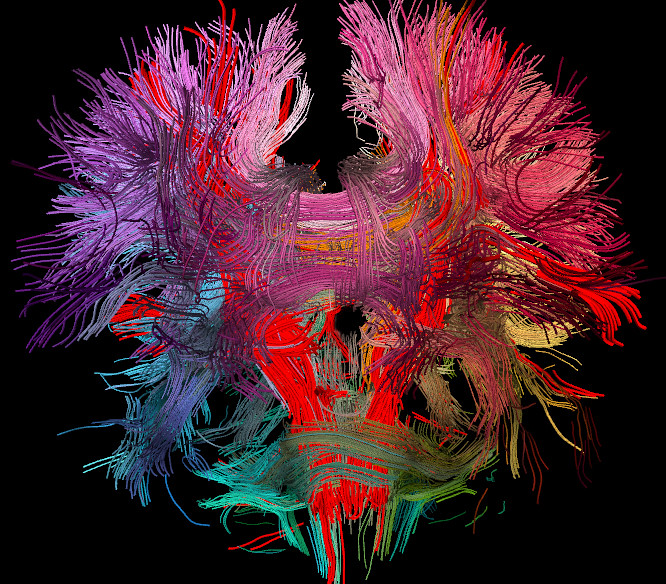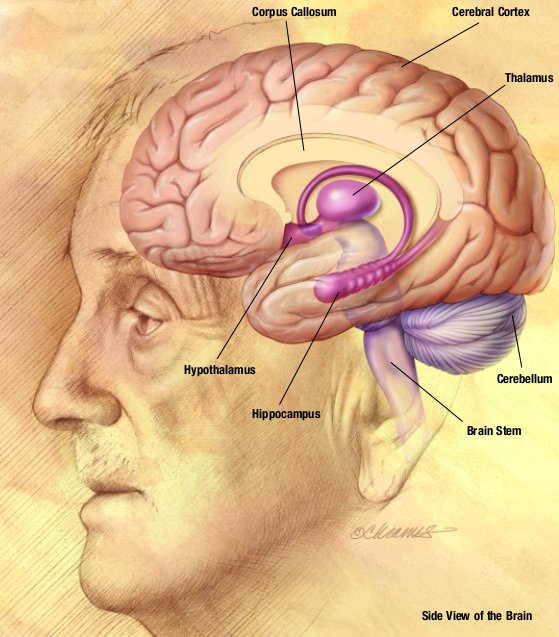The Singapore study: The brain as a network of networks

Tea helps your brain maintain efficiency by altering the physical structures of its networks of connections. That is the finding of a study that is attracting strong interest among tea lovers, for obvious reasons. While it is carefully limited in its conclusions and is far from constituting a “proof”, it opens up a promising new horizon in the investigation of tea and wellness.
In June 2019, an international research team led by the National University of Singapore published a report on this striking impact of tea on brain organization and efficiency. The findings are simple to summarize:
- The brain is composed of networks that connect regions where each has its specialized activities and role. The study used a previously validated template that “parcellates” the cerebrum into ninety such “regions of interest.” For instance, the pedunculopontine nucleus is involved in many areas of arousal, attention and learning. The better known hippocampus plays a major role in consolidating information from short-term to long-term memory. “The” brain is conceptually an Internet of neurons, dynamically linked.
- The bioactive ingredients of tea organize and make more efficient the connections between the regions: As with the Internet, the links determine speed, reliability, response time, etc. You see the impact of network structure when a page is slow to download. The leader of the tea study explains this in terms of roads: “When a road system is better organised, the movement of vehicles and passengers is more efficient and uses less resources. Similarly, when the connections between brain regions are more structured, information processing can be performed more efficiently.”
- Neuroimaging through MRIs clearly indicates that long-term tea drinkers (four or more times a week for at least 25 years) show a more efficient organization that is consistent with earlier findings that tea arrests the cognitive decline inherent in aging. Note that the study does not examine the regions — analogous to sensors, servers and apps.
Overall, the main implication of the study is that tea drinking is good for you as a lifelong aid to wellness, in its positive contribution to brain efficiency. No, this doesn’t mean it makes you more intelligent but it keeps you tuned up in core mental functions. As you age, a history of regular tea drinking has protective effects on maintaining sharpness, concentration and clarity of thought.
These results apply across black, green and oolong tea drinkers. It is the combination of the main bioactive constituents of catechins, L-theanine and caffeine that affect brain structures in contrast to the impact on health of, say, the individual ECGC molecule that is most concentrated in green tea. Catechins are part of the chemical family of antioxidant flavonoids; translated, this is basically “the good things in green tea.” L-theanine is another good thing amino acid that has been shown to improve anxiety and alertness. There’s a substantive body of research on the impact of L-theanine on mental states that adds to the implications of the Tea-Brain Structure study.
Caffeine is the world’s most consumed psychotropic drug with well-known benefits and risks. (And strongly held views of it as an unacceptable threat to health. There is a rapidly growing body, though, of scientific evidence that it has substantial therapeutic value in preventing and perhaps at some stage even treating Parkinson’s disease and dementia.)
The study has a number of issues that are not so much problems as cautions. It breaks new ground. Only two previous studies had examined aspects of tea drinking and brain connectivity. The sample is small, with as yet no replication in other larger-scale studies exploring a more diverse range of subjects. It consisted of two groups of healthy Singapore residents aged 60 or over: 15 assigned to the tea drinking group and 21 for the non-drinkers, for a total of 36. This is double that of the earlier studies but still a major limitation for statistical analysis and conclusions.
The research was also an innovation in tea studies in its use of MRI neuroimaging, which in itself poses challenges in design (resting versus non-resting, image calibration, tracking algorithms, etc.) and analysis (graph-theoretic and non-parametric perturbation methods, with many more esoteric et ceteras.) That said, this is a sophisticated and rigorous study that makes its main case convincingly.
The dynamics of the tea-structure link
The brain is a walled-in system, almost literally. It’s protected from infection by bacteria, pathogens and harmful foreign substances in the body’s bloodstream by an intricate network of blood vessels. This blood-brain membrane allows essential brain nutrients to penetrate the barrier, such as glucose, water and amino acids.
And also tea catechins, L-theanine and caffeine. That seems to be the key to the study’s findings and implications. Tea feeds the brain and directly affects its structure as a building block nutrient that is permitted to pass through the membrane. The nutrients have other effects: the potential damage control of the regions affected by Parkinson’s and dementia, the beneficial and traceable Alpha wave increase associated with meditation, and individual capabilities of memory, spatial orientation and navigation.
The study of tea impact of brain organization is substantive in itself. The journal for which it was accepted for publication, Aging, has a strong reputation and distinguished editorial board. It is preliminary and limited on scope. No further evaluation of its findings is as yet possible. Regardless, it seems valuable in adding a focus for studies of tea and health that zeroes in on what is after all, the very center of our wellness: how we are best able to use our brain in all areas of life. It’s important not to start muddling the early findings with fantasy and speculation about magic IQ boosts or pills for dementia. This research shows that there is something worth studying in depth. But, it’s not a pharmacology plan, which typically involves a sustained development path for a major new drug of over a decade, costing around $1.5 billion.It’s research for insight, exploration and knowledge-building.”
Next read: The Power of Meditation
Click here to see all the articles in the Health & Wellness Issue

